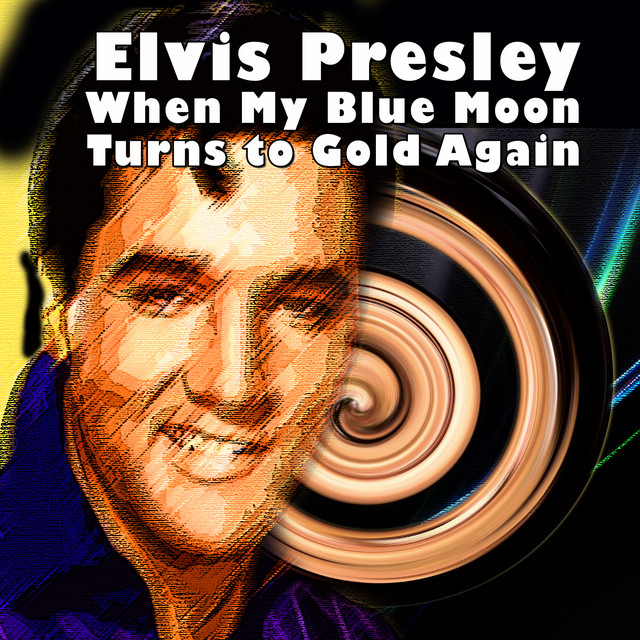
About the song
Absolutely, let’s delve into the world of “When My Blue Moon Turns to Gold Again,” a lesser-known gem from the crown jewel that is Elvis Presley’s 1956 self-titled debut album. This song, nestled amongst the rockabilly firecrackers that propelled Elvis to superstardom, offers a glimpse into a different facet of the young king’s musicality.
---> Scroll down for the VIDEO
While tracks like “Heartbreak Hotel” and “Hound Dog” embodied the raw energy and rebellion that defined early rock and roll, “When My Blue Moon Turns to Gold Again” showcases a surprising tenderness. Elvis, barely 21 at the time of recording, taps into a well of melancholic yearning that resonates with anyone who has ever experienced heartbreak.
The song’s origins lie outside the realm of Sun Studios, the Memphis recording haven that birthed Elvis’s meteoric rise. Wiley Walker and Gene Sullivan, a country music duo, penned the tune in 1940. Their version, though commercially successful, lacked the electrifying spark that Elvis would later breathe into it.
However, the song’s core message – a lover’s longing for a lost relationship and the hope of reconciliation – transcended genre. This universality is what likely attracted Elvis and his producer, Sam Phillips. In their hands, “When My Blue Moon Turns to Gold Again” became a bridge between the burgeoning rock and roll scene and the country music tradition that heavily influenced Elvis’s early sound.
The arrangement itself is a masterclass in understated elegance. Scotty Moore’s iconic electric guitar, usually a driving force in early Elvis recordings, takes a backseat here. Instead, a gentle acoustic rhythm guides the song, punctuated by the occasional flourish from Moore’s electric counterpart. Bill Black’s upright bass lays down a steady foundation, while D.J. Fontana’s drums provide a subtle pulse. The addition of The Jordanaires, a gospel quartet known for their rich harmonies, adds a layer of emotional depth that elevates the song beyond a simple ballad.
Elvis’s vocal performance on “When My Blue Moon Turns to Gold Again” is a revelation. Stripped of the rockabilly swagger that became his signature, he delivers a nuanced and heartfelt performance. His voice, still brimming with youthful power, conveys a vulnerability that is both endearing and relatable. He seamlessly navigates between hushed whispers and soaring declarations, mirroring the emotional range of the lyrics.
“When My Blue Moon Turns to Gold Again” may not be the first Elvis song that springs to mind, but it stands as a testament to his versatility as an artist. It allows us to see beyond the hip-swiveling rock and roll icon and discover a young man capable of expressing a depth of emotion that transcends genre. This song is a quiet gem in Elvis’s vast catalog, a testament to his ability to connect with listeners on a deeply personal level.
Video
Lyrics
“When My Blue Moon Turns To Gold Again”
When my rainbow turns the clouds away
When my blue moon turns to gold again
You’ll be back within my arms to stay
When the memories that linger in our hearts
Memories that make my heart cold
However some day they’ll live again sweetheart
And my blue moon again will turn to gold